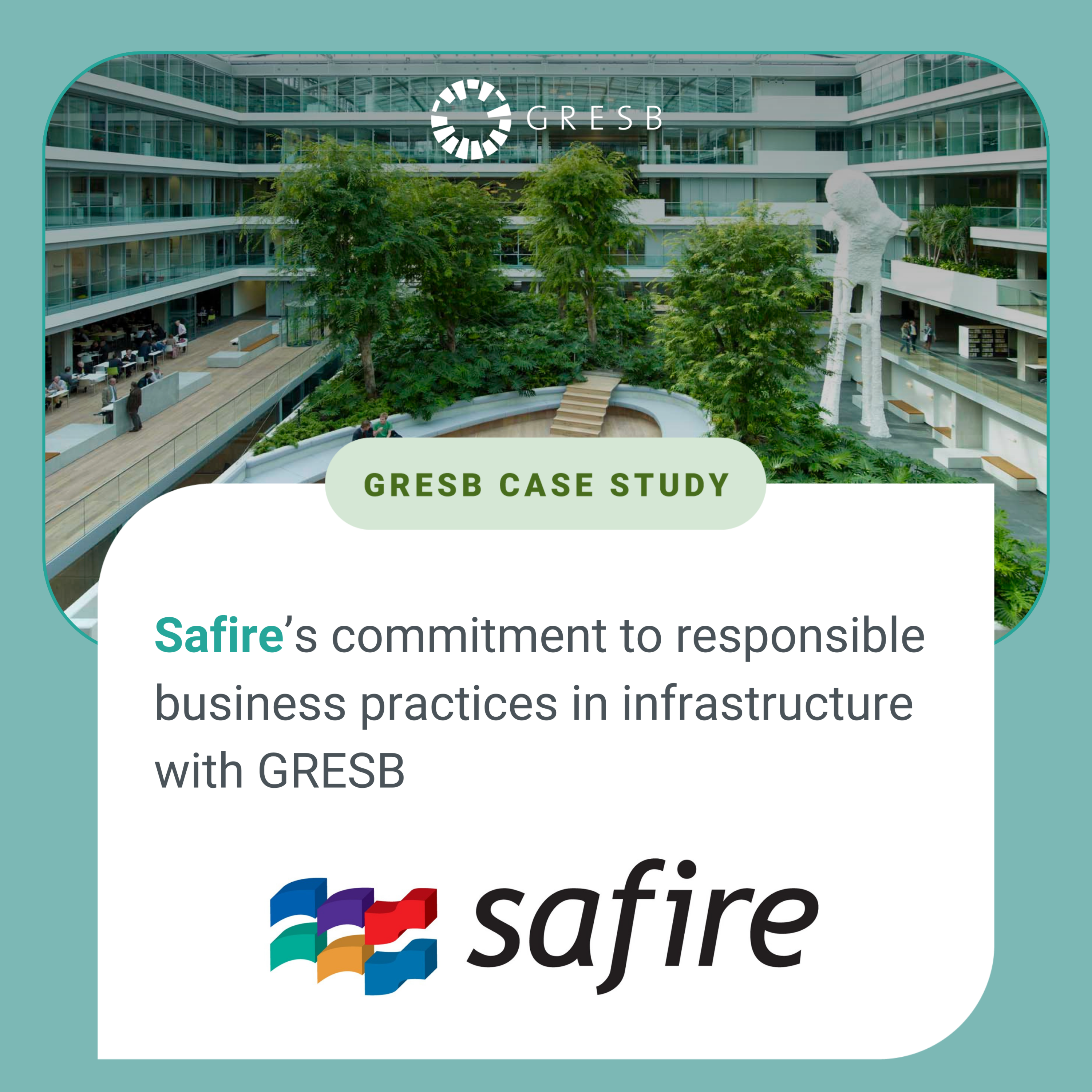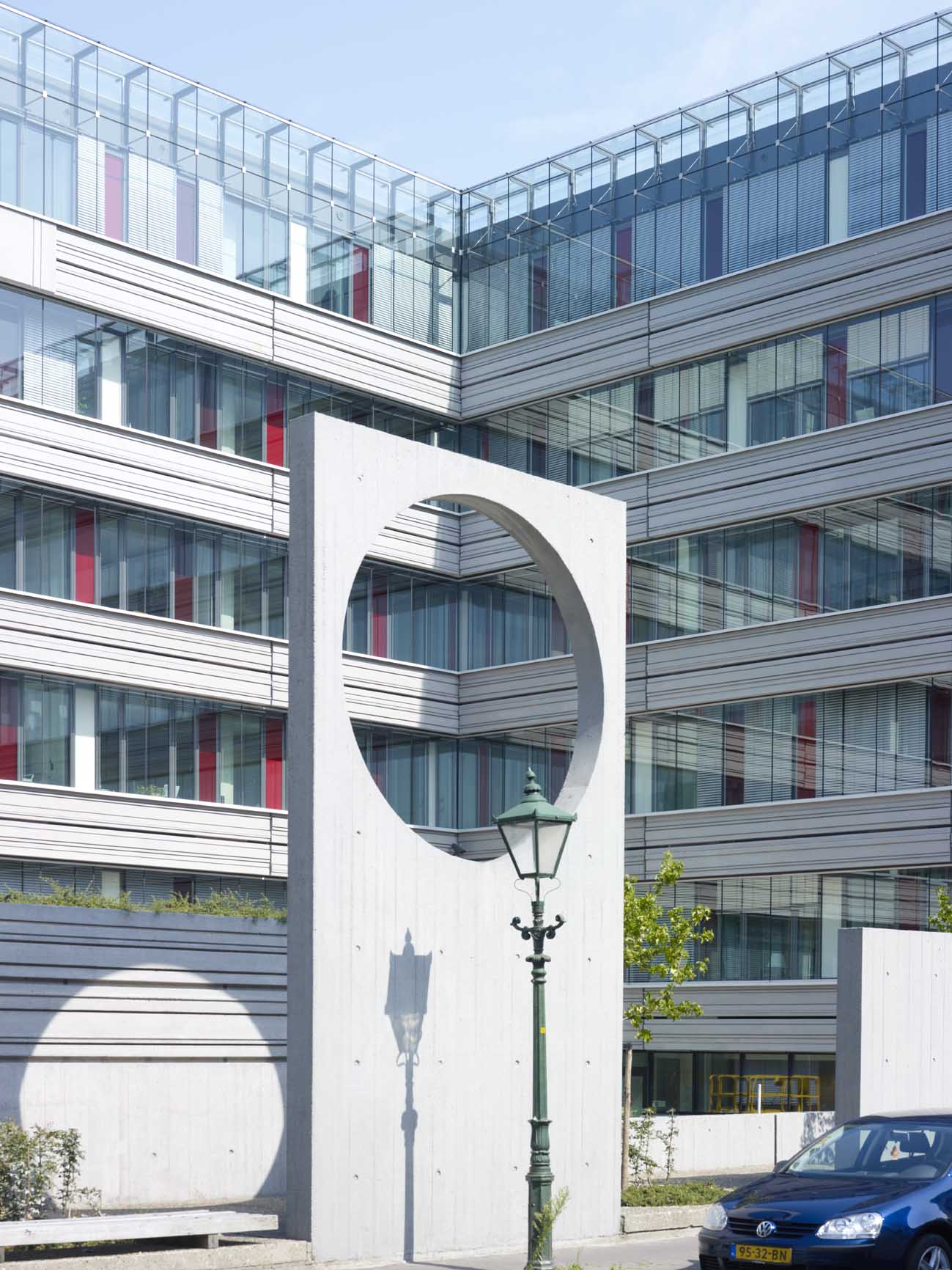About Safire B.V.
The Ministry of Finance building in the Hague is part of a public-private partnership project that comprises the renovation and operation of the building. The building is spread over nine floors, three of which are below ground, including areas for parking and sports facilities, and six of which are above ground, including meeting rooms, a library, offices, and a restaurant.
Safire B.V. is a special purpose company, managed by abrdn infrastructure capital investment vehicles, set up to manage the project’s design, construction, facilities, and financing in accordance with the project agreement with the contracting authority.

GRESB Assessments, tools, or products used:
- GRESB Infrastructure Asset Assessment
- GRESB SFDR Reporting Solution
Region(s) of operation:
- The Netherlands
Leveraging GRESB for ESG goal setting
Safire began its GRESB journey in 2018 to help manage and mitigate ESG risks. Since then, the GRESB benchmarks and industry insights derived from participation in the Assessments have played an important role in shaping Safire’s ESG strategy. The company leverages GRESB metrics to set and refine its ESG objectives, incorporating lessons learned from the sector.
In quarterly management reports, Safire B.V. integrates ESG objectives influenced by GRESB benchmarks, providing transparency on progress. This approach extends to subcontractors who provide regular monthly progress reports that include data on energy performance and health, safety, and environment (HSE). The result is a structured approach to setting, monitoring, and adjusting ESG objectives, fostering collaboration between investors and stakeholders along the value chain.
As part of this approach, Safire has set high-reaching ESG goals, such as reducing gas consumption, utilizing green electricity, and exploring solar panel installations. The development and implementation of these initiatives reflects a proactive approach to responsible business practices and improving sustainability performance. The company has also evolved its reporting practices, making statements regarding intentions to align with net-zero objectives and its assessment of climate-related risks.
“Our 2022 GRESB results spurred us to take steps to align with net-zero objectives. Safire is now in the early stages of aligning with net-zero goals and recognizes the importance of mitigating climate-related risks. We are committed to working in partnership with our contracting authority and sub-contractors to set decarbonization goals and interim carbon reduction targets, and review these targets at least every five years,” said Bas Jonker, SPC Project Manager at Safire.
Navigating regulations and meeting investor expectations
Safire emphasizes the importance of thorough reviews and collaboration with external sustainability teams to ensure precise reporting and optimized scores. Highlighting the significance of industry-specific reporting aligned with other standards, Safire considers this approach highly valuable. It believes that adopting industry-specific reporting standards such as GRESB, in harmony with broader frameworks, fosters cross-sectoral collaboration and facilitates shared learning across industries.

In addressing evolving regulatory requirements, such as SFDR and TCFD, Safire aligns its reporting practices with abrdn’s expectations.
“We monitor the evolving regulatory landscape closely and proactively integrate any reporting requirements at the project level, which then enables further reporting at the fund and group level. For example, in 2023, we used GRESB’s SFDR Assessment to provide the required SFDR Principal Impact Statement to abrdn. Similarly, we worked closely with abrdn on TCFD reporting, since some of its funds are subject to this regulation,” noted Jonker.
Looking towards sustainability goals in 2024 and beyond, Safire is committed to ethical and transparent business practices among its subcontractors, suppliers, and other affiliated entities. This involves the implementation of a human rights due diligence policy and associated procedures aligned with the EU Taxonomy minimum safeguards for the supply chain and the Sustainable Procurement policy. Additionally, its targets include achieving specific energy performance objectives and meeting predetermined HSE standards. “GRESB plays a pivotal role in our annual monitoring efforts, providing valuable insights into the progress and attainment of these ESG goals,” concluded Jonker.